Spending too much on recruitment, payroll or global HR?
We help you find the Best Providers at the lowest cost.
Using the best recruitment tools can significantly impact a company’s hiring process. They can help reduce bias in hiring, improve employer branding, and increase the quality of hires. By automating many of the tasks involved in recruiting, companies can focus on finding the best candidates for the job.
Recruiting is a crucial aspect of any business but can be daunting. Fortunately, there are recruitment tools available that can make the process much easier. These tools can help with everything from posting job openings to scheduling interviews and onboarding new hires.
Recruitment Tools Overview

Recruitment tools are software applications designed to streamline and optimize the hiring process. These tools can range from applicant tracking software (ATS) to social media recruiting platforms, and they can be used by recruiters and hiring managers to increase efficiency and reduce bias in the hiring process.
One of the most popular types of recruitment tools is ATS. ATS software helps recruiters manage the hiring process, from posting job openings to tracking candidate resumes and applications. Many ATS platforms also offer features like resume parsing, interview scheduling, and candidate communication tools to streamline the entire hiring process.

Another popular type of recruitment tool is social media recruiting platforms. These platforms allow recruiters to post job openings and engage with potential candidates on social media sites like LinkedIn, Facebook, and X. Social recruiting can effectively reach a wider audience and connect with candidates who may not be actively searching for job openings.
In addition to ATS and social recruiting platforms, many other types of recruitment tools are available, including AI-powered candidate recommendation tools, automation tools for screening, and comprehensive HR software platforms. These tools can help recruiters and hiring managers improve the hiring process’s speed and efficiency while reducing bias and improving the candidate experience.
Overall, recruitment tools have become increasingly common in recent years as companies seek to optimize their hiring processes and attract top talent. By using a combination of recruitment tools, recruiters and hiring managers can streamline the hiring process, reduce bias, and ultimately make better hiring decisions.
Types of Recruitment Too
Recruitment tools come in many forms and are designed to help streamline the hiring process. In this section, we will discuss some of the most popular recruitment tools used by HR teams, recruiters, staffing agencies, and recruiting agencies.
Applicant Tracking Systems
Applicant Tracking Systems (ATS) are software applications designed to help recruiters manage the recruitment process. ATS tools track job applicants, manage resumes, and automate hiring processes. ATS tools are handy for large companies that receive many job applications. Some popular ATS tools include JobScore, Lever, and Workable.
Candidate Assessment Tools
Candidate assessment tools evaluate job candidates based on their skills, experience, and qualifications. These tools help recruiters identify the most qualified candidates and make informed hiring decisions. Some popular candidate assessment tools include Plum, Codility, and HireVue.
Recruitment CRM
Recruitment CRM (Customer Relationship Management) tools are designed to help recruiters manage their relationships with job candidates. These tools track candidate interactions, manage resumes, and automate recruitment. Recruitment CRM tools are especially useful for staffing agencies and recruiting agencies. Some widespread recruitment CRM tools include Bullhorn, JobAdder, and Recruit CRM.
Social Media Management Tools
Social media management tools are used to manage social media accounts and engage with job candidates on social media platforms. These tools help recruiters build relationships with candidates and promote job openings on social media. Some popular social media management tools include Hootsuite, Buffer, and Sprout Social.
Video Interview Tools
Video interview tools are used to conduct job interviews remotely. These tools are designed to help recruiters save time and reduce travel costs. Video interview tools are especially useful for companies that hire remote workers or have a geographically dispersed workforce. Some popular video interview tools include Zoom, Skype, and Google Meet.
Onboarding Tools
Onboarding tools help new employees get up to speed quickly and become productive team members. These tools help HR teams manage the new employee onboarding process and ensure new employees have the necessary resources to succeed. Some popular onboarding tools include BambooHR, Talmundo, and Sapling.
Job Boards
Job boards are websites that are used to advertise job openings. These websites help recruiters reach a large audience of job seekers and promote job openings to various candidates. Some popular job boards include Indeed, Glassdoor, and LinkedIn.
Artificial Intelligence Tools
Artificial Intelligence (AI) tools are designed to help recruiters automate the recruitment process and make more informed hiring decisions. AI tools use machine learning algorithms to analyze job candidates and identify the most qualified candidates for a given position. Some popular AI tools include Hireez, and Textio.
In conclusion, many different types of recruitment tools are available to HR teams, recruiters, staffing agencies, and recruiting agencies. These tools help streamline recruitment, save time, and make more informed hiring decisions. Companies can use the right recruitment tools to improve their recruitment process and find the best candidates for their open positions.
The Role of Recruitment Tools in the Hiring Process
Recruitment tools play a crucial role in hiring, helping hiring teams effectively manage the recruitment pipeline and make informed decisions about candidates. These tools automate and streamline many aspects of the hiring process, saving time and resources and improving the overall quality of hires.
One of the critical benefits of recruitment tools is that they help to identify and attract top talent. With job aggregators and social media management platforms, recruiters can post job listings and reach a wider audience of potential candidates. Applicant tracking systems (ATS) help to manage applications and resumes, allowing recruiters to quickly screen and filter candidates based on their qualifications and experience.
Recruitment tools also help to streamline the hiring process, making it more efficient and effective. With process optimization features, recruiters can build process efficiencies and improve talent acquisition activities over time. Task management tools help to manage every recruitment campaign as a project, with timelines, subtasks, and more. This ensures that recruiters can stay on top of every aspect of the hiring process and keep it moving forward.
Overall, recruitment tools are essential to the hiring process, providing hiring teams with the tools they need to effectively manage the recruitment pipeline and make informed decisions about candidates. By automating and streamlining many aspects of the hiring process, these tools save time and resources and improve the overall quality of hires.
Key Features of Recruitment Tools
Recruitment tools are designed to help HR professionals and recruiters streamline their hiring processes. These tools offer a range of features that can improve productivity, implement best practices, and enhance the employer brand. Here are some key features that are commonly found in recruitment tools:
Automation Features
One of the most significant advantages of recruitment tools is their automation features. This automation can help with candidate sourcing, screening, and interview scheduling. With automation, recruiters can save time and focus on other essential tasks. Some recruitment tools also offer project management features that enable teams to collaborate on tasks and track progress.
Collaboration Features
Collaboration is essential in hiring, and recruitment tools offer several features that facilitate collaboration. These features can include task management, feedback, and user roles. Task management features allow team members to assign tasks to one another, while feedback features enable team members to provide feedback on candidates. User roles ensure team members access the right information and tools.
Customization Features
Recruitment tools also offer customization features that allow recruiters to tailor the software to their needs. These features can include custom forms, custom workflows, and custom fields. Custom forms can help recruiters collect the information they need from candidates, while custom workflows can help automate the hiring process. Custom fields allow recruiters to track the information that is most important to them.
Security Features
Security is critical in recruitment, and recruitment tools offer several security features to protect sensitive data. These features can include data encryption, access controls, and compliance features. Data encryption ensures that data is protected in transit and at rest, while access controls ensure that only authorized users can access sensitive data. Compliance features ensure that the software meets regulatory requirements.
Ease of Use
Recruitment tools should be easy to use and intuitive. They should not require a steep learning curve or extensive training. Ease of use is important because it ensures that recruiters can quickly adopt the software and start using it to its full potential.
Limitations
Recruitment tools are not perfect, and they do have some limitations. Some tools may have slow load times, while others may not be available as mobile apps. These limitations should be considered before selecting a recruitment tool.
Mobile App Availability
Mobile app availability is becoming increasingly important in recruitment. Many recruiters are on the go and need to be able to access recruitment tools from their mobile devices. Recruitment tools that offer mobile apps can help recruiters stay productive even when they are away from their desks.
In conclusion, recruitment tools offer a range of features that can improve productivity, collaboration, customization, security, and ease of use. Recruiters should carefully consider these features when selecting a recruitment tool.
Popular Recruitment Tools
Recruitment tools are essential for businesses to streamline their hiring process, saving time and money. Here are some of the most popular recruitment tools available in the market today:
Workable

Workable is an all-in-one recruitment platform that offers solutions for applicant tracking, sourcing, and screening. It provides a user-friendly interface and offers phone support and customer support. Workable is ideal for fast-growing companies and offers a free trial. Pricing for Workable starts at $99 per month.
Lever

Lever is a modern recruitment platform that offers solutions for applicant tracking, sourcing, and candidate relationship management. It offers a user-friendly interface and provides phone support and customer support. Lever is ideal for businesses of all sizes and offers a free trial. Pricing for Lever starts at $399 per month.
SmartRecruiters
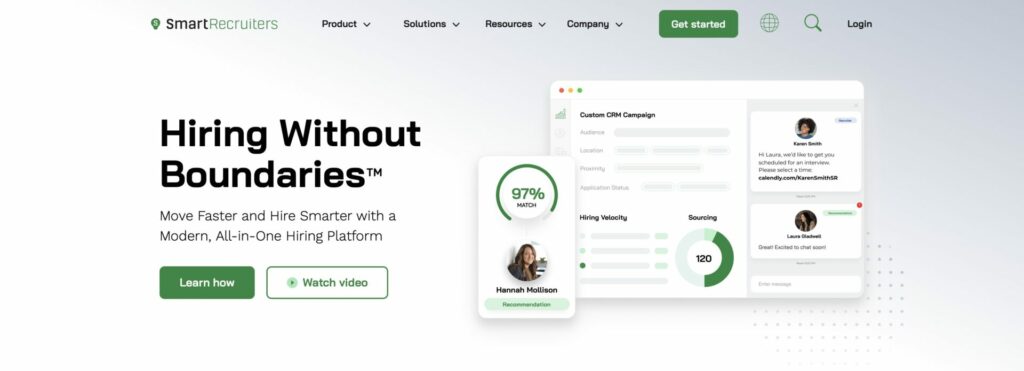
SmartRecruiters is an enterprise-grade recruitment platform that offers solutions for applicant tracking, sourcing, and candidate relationship management. It offers a user-friendly interface and provides phone support and customer support. SmartRecruiters is ideal for businesses of all sizes and offers a free trial. Pricing for SmartRecruiters starts at $10,000 per year.
Workday
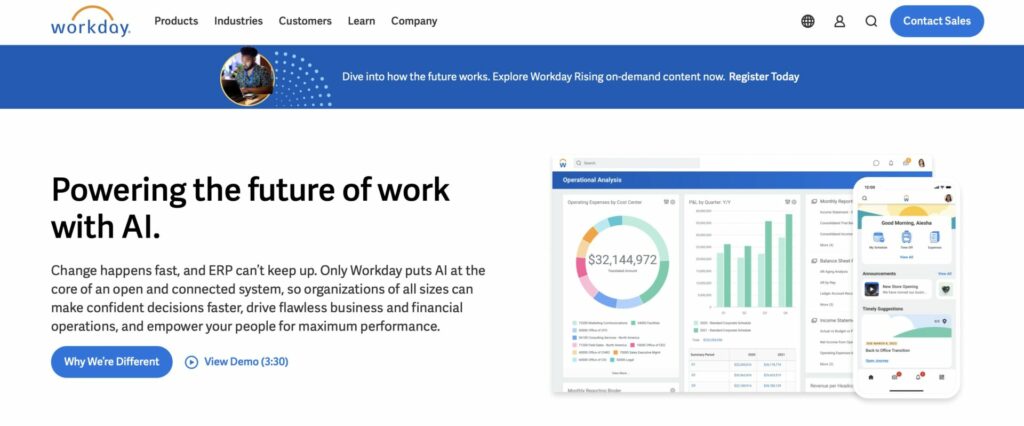
Workday is a cloud-based human capital management (HCM) platform that offers solutions for recruitment, payroll, and talent management. It offers a user-friendly interface and provides phone support and customer support. Workday is ideal for businesses of all sizes and offers a free trial. Pricing for Workday starts at $100 per user per month.
Bullhorn
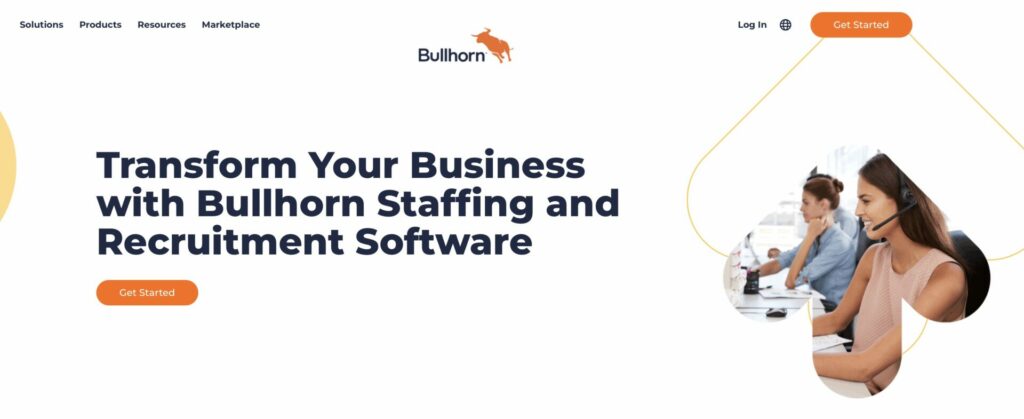
Bullhorn is a cloud-based recruitment platform that offers solutions for applicant tracking, customer relationship management, and business intelligence. It offers a user-friendly interface and provides phone support and customer support. Bullhorn is ideal for businesses of all sizes and offers a free trial. Pricing for Bullhorn starts at $99 per user per month.
Manatal
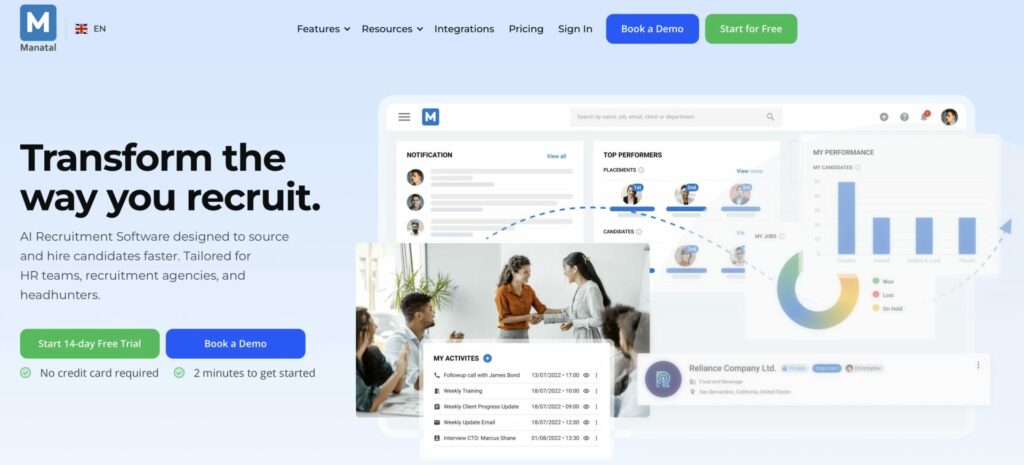
Manatal is an AI-powered recruitment platform that offers solutions for applicant tracking, sourcing, and candidate relationship management. It offers a user-friendly interface and provides phone support and customer support. Manatal is ideal for businesses of all sizes and offers a free trial. Pricing for Manatal starts at $15 per user per month.
Freshworks
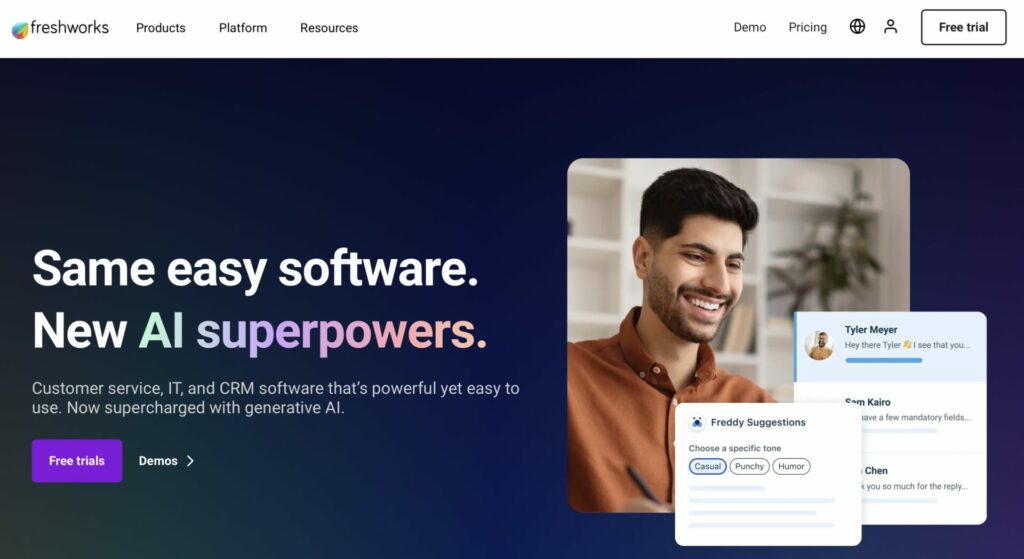
Freshworks is an all-in-one customer engagement platform that offers solutions for sales, marketing, and customer support. It also offers solutions for applicant tracking and candidate relationship management. Freshworks offers a user-friendly interface and provides phone support and customer support. It is ideal for businesses of all sizes and offers a free trial. Pricing for Freshworks starts at $15 per user per month.
BambooHR
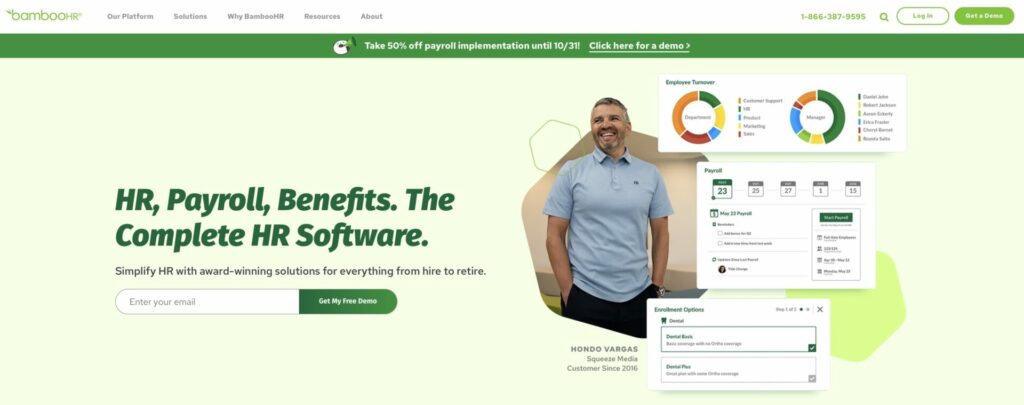
BambooHR is a cloud-based HR platform that offers solutions for applicant tracking, onboarding, and performance management. It offers a user-friendly interface and provides phone support and customer support. BambooHR is ideal for businesses of all sizes and offers a free trial. Pricing for BambooHR starts at $6.19 per user per month.
HireVue
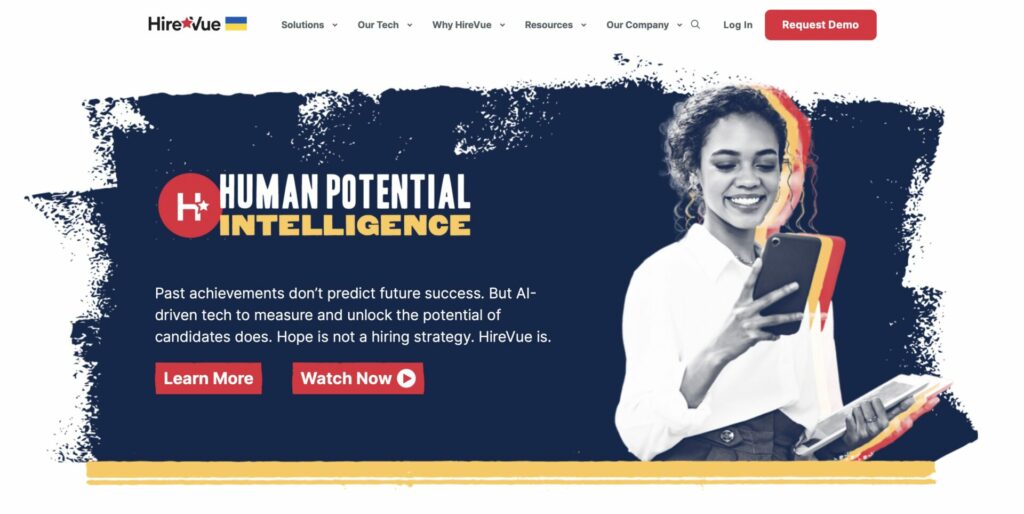
HireVue is a video interviewing platform that offers solutions for screening and interviewing candidates. It offers a user-friendly interface and provides phone support and customer support. HireVue is ideal for businesses of all sizes and offers a free trial. Pricing for HireVue starts at $10,000 per year.
Recruitee
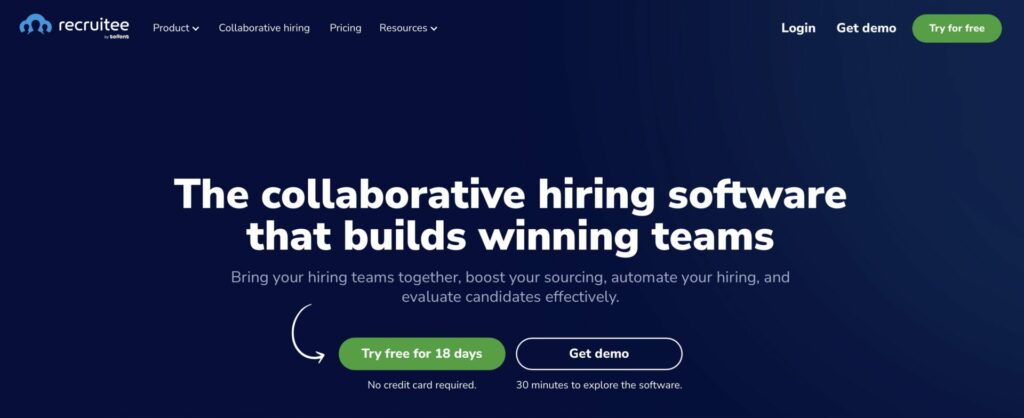
Recruitee is a cloud-based recruitment platform that offers solutions for applicant tracking, sourcing, and candidate relationship management. It offers a user-friendly interface and provides phone support and customer support. Recruitee is ideal for businesses of all sizes and offers a free trial. Pricing for Recruitee starts at $79 per month.
ADP
ADP is a cloud-based HR platform that offers solutions for payroll, benefits, and talent management. It also offers solutions for applicant tracking and candidate relationship management. ADP offers a user-friendly interface and provides phone support and customer support. It is ideal for businesses of all sizes and offers a free trial. Pricing for ADP starts at $59 per month.
Breezy HR
Breezy HR is a cloud-based recruitment platform that offers solutions for applicant tracking, sourcing, and candidate relationship management. It offers a user-friendly interface and provides phone support and customer support. Breezy HR is ideal for businesses of all sizes and offers a free trial. Pricing for Breezy HR starts at $143 per month.
Recruiterflow
Recruiterflow is a cloud-based recruitment platform that offers solutions for applicant tracking, sourcing, and candidate relationship management. It offers a user-friendly interface and provides phone support and customer support. Recruiterflow is ideal for businesses of all sizes and offers a free trial. Pricing for Recruiterflow starts at $75 per month.
JazzHR
JazzHR is a cloud-based recruitment platform that offers solutions for applicant tracking, sourcing, and candidate relationship management. It offers a user-friendly interface and provides phone support and customer support. JazzHR
The Impact of Recruitment Tools on Employer Branding
Recruitment tools can have a significant impact on an organization’s employer branding. By streamlining the recruitment process and providing a positive candidate experience, recruitment tools can help organizations attract and retain top talent, while also enhancing their reputation as an employer of choice.
One of the key benefits of recruitment tools is that they can help organizations create a consistent and cohesive employer brand. With features like customizable job postings and branded career pages, recruitment tools can help organizations showcase their unique culture and values, and communicate their employer brand to candidates in a clear and compelling way. This can help organizations stand out from competitors, and attract candidates who are a good fit for their organization.
Another way that recruitment tools can impact employer branding is by improving the candidate experience. By providing a user-friendly application process, automated communication, and personalized feedback, recruitment tools can help candidates feel valued and engaged throughout the recruitment process. This can help organizations build a positive reputation as an employer that cares about its candidates, and can lead to increased candidate referrals and positive online reviews.
LinkedIn is one recruitment tool that can have a particularly significant impact on employer branding. With over 740 million members worldwide, LinkedIn is a powerful platform for building and promoting an employer brand. By creating a strong LinkedIn presence, organizations can showcase their culture, values, and job opportunities to a large and engaged audience of potential candidates. LinkedIn also offers a range of recruitment tools, such as job postings, candidate search, and employer branding content, that can help organizations attract and engage top talent.
Overall, recruitment tools can have a significant impact on an organization’s employer branding, helping them attract and retain top talent, while enhancing their reputation as an employer of choice. By leveraging the power of recruitment tools like LinkedIn, organizations can create a consistent and compelling employer brand, and provide a positive candidate experience that sets them apart from competitors.
Recruitment Tools and Bias in Hiring
Recruitment tools have become increasingly popular in recent years as companies seek to streamline their hiring processes. However, these tools are not without their flaws. One major concern is the potential for bias in the hiring process.
Bias can creep into the hiring process in a number of ways. For example, if a recruitment tool is programmed to prioritize certain qualifications or experiences, it may inadvertently exclude candidates who would be a good fit for the position but do not meet those specific criteria. This can result in a less diverse and inclusive candidate pool.
Another way bias can enter the hiring process is through the data that is used to train the recruitment tool. If the data used to train the tool is biased, the tool itself will be biased. For example, if the tool is trained on data that primarily features white male candidates, it may be less effective at identifying qualified candidates from underrepresented groups.
To combat bias in recruitment tools, it is important to take a proactive approach. This can include:
- Conducting regular audits of recruitment tools to identify and address any potential biases
- Ensuring that the data used to train recruitment tools is diverse and representative of the candidate pool
- Providing training to recruiters and hiring managers on how to recognize and mitigate bias in the hiring process
Ultimately, recruitment tools can be a valuable asset in the hiring process, but it is important to use them thoughtfully and with an eye towards mitigating bias. By taking a proactive approach, companies can ensure that they are attracting and hiring the best candidates for the job, regardless of their background or identity.
Conclusion
Recruiting tools have become essential assets in the pursuit of top talent. They streamline processes, save valuable time, enhance the candidate experience, and offer data-driven insights that inform strategic decision-making. The landscape of available tools is vast, and choosing the right ones can be challenging.
A recruitment strategy is critical to the success of any organization. HR software can help streamline the recruitment process by automating tasks such as posting job ads, tracking applications, and scheduling interviews. It can also provide valuable insights into candidate data, such as demographics, skills, and experience.
Candidate feedback tools are also essential for improving the recruitment process. Pop-ups can be used to collect feedback from candidates after they apply for a job or attend an interview. This feedback can help organizations identify areas for improvement, such as the application process or interview questions.
Employee referral functionality is another valuable tool for organizations looking to hire top talent. Referral programs can incentivize employees to refer qualified candidates, which can save time and money in the recruitment process. Referrals are often high-quality candidates who are a good fit for the organization’s culture and values.
Organizations must invest in the right recruitment tools to hire the best candidates for crucial positions. These tools can filter out the best candidates, rather than hiring the wrong ones and going through the entire recruitment process again. By using recruitment tools, organizations can improve the efficiency of their recruitment process and hire top talent.
Frequently Asked Questions
There are several free recruitment tools available that can help streamline the hiring process. Some of the best free recruitment tools include Indeed, Glassdoor, LinkedIn, and Google for Jobs. These platforms allow recruiters to post job listings, search resumes, and communicate with candidates.
Recruiting software tools can help managers streamline the recruitment process and improve their hiring decisions. Some of the top recruiting software tools for managers include Workable, JazzHR, Breezy HR, and Recruiterbox. These tools offer features such as applicant tracking, resume parsing, and interview scheduling.
Sourcing tools can help recruiters find and attract top talent. Some of the most effective sourcing tools for recruiters include TalentBin, HiringSolved, and Sourcing.io. These tools allow recruiters to search for candidates across multiple platforms and websites.
Recruiters use a variety of tools to find candidates, including job boards, social media, and recruiting software. Job boards such as Indeed and Glassdoor allow recruiters to post job listings and search resumes. Social media platforms such as LinkedIn and Twitter allow recruiters to connect with potential candidates and promote job listings. Recruiting software such as Workable and JazzHR offer features such as resume parsing and applicant tracking to help recruiters manage the recruitment process.
What are the three most common recruitment methods?
The three most common recruitment methods are job postings, employee referrals, and recruiting agencies. Job postings involve advertising job openings on job boards, company websites, and social media. Employee referrals involve current employees referring potential candidates for job openings. Recruiting agencies involve outsourcing the recruitment process to a third-party agency.


